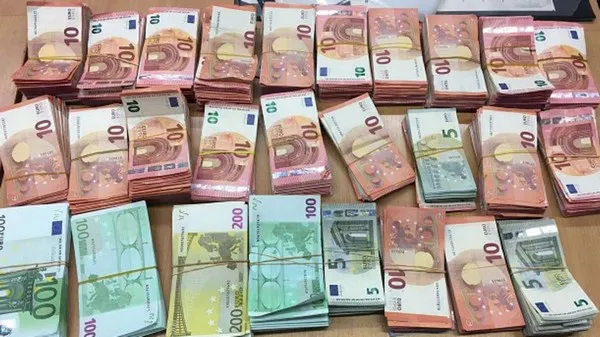The euro has been a major player in the international currency markets since its introduction in 1999. The euro was created as a means of facilitating trade and investment between European countries, and it quickly became one of the world’s most widely traded currencies.
In recent years, there has been much discussion about whether the euro has devalued against other major currencies, such as the US dollar and the British pound. In this article, we will examine the evidence to determine whether the euro has indeed devalued.
What is Currency Devaluation?
Before we can answer the question of whether the euro has devalued, we must first understand what currency devaluation means. Currency devaluation occurs when a currency loses value relative to other currencies. This can happen due to a variety of factors, including changes in economic conditions, central bank policies, geopolitical events, and more.
When a currency devalues, it becomes cheaper to buy goods and services from other countries, but more expensive for foreign buyers to purchase goods and services from the country whose currency has devalued. This can have a significant impact on trade and investment flows, as well as on inflation and interest rates.
Has the Euro Devalued Against Other Major Currencies?
There is no simple answer to the question of whether the euro has devalued against other major currencies. The value of a currency is constantly fluctuating, and there are many different ways to measure the strength or weakness of a currency.
One common way to measure the strength of a currency is to look at its exchange rate against other major currencies. When we compare the euro’s exchange rate against other major currencies over the past several years, we see that it has fluctuated significantly.
For example, in early 2018, the euro reached a three-year high against the US dollar, trading at over $1.25. However, by the end of that year, the euro had fallen back to around $1.14. Similarly, in early 2021, the euro hit a two-and-a-half-year high against the British pound, trading at around £0.90. But by May of that year, it had fallen back to around £0.86.
These fluctuations suggest that the euro has not necessarily devalued over the past few years, but rather that its value has been subject to the same ups and downs as other major currencies.
Another way to measure the strength of a currency is to look at its purchasing power parity (PPP) relative to other currencies. PPP is a theory that suggests that over the long run, exchange rates between two currencies should balance out so that goods and services cost the same amount in both currencies.
When we compare the euro’s PPP against other major currencies over the past several years, we see that it has also fluctuated significantly. However, these fluctuations suggest that the euro has not necessarily devalued against other major currencies, but rather that its value has been subject to the same economic conditions and trends as other currencies.
What Factors Have Affected the Euro’s Value?
Several different factors have contributed to the fluctuations in the euro’s value over the past several years. One of the most significant has been changes in monetary policy by the European Central Bank (ECB).
In recent years, the ECB has implemented a range of measures to stimulate the European economy, including cutting interest rates to record lows and implementing a program of quantitative easing (QE). These measures have helped to boost economic growth and inflation in the Eurozone, which has in turn supported the value of the euro.
However, there have also been concerns about the potential negative consequences of these policies, such as higher inflation, asset bubbles, and financial instability. As a result, the ECB has had to strike a delicate balance between supporting the economy and maintaining stability in the financial system.
Aside from monetary policy, other factors that have affected the euro’s value include changes in global economic conditions, such as the COVID-19 pandemic and trade tensions between the US and China, as well as geopolitical events such as Brexit and political instability in Europe.
Conclusion
In conclusion, there is no simple answer to the question of whether the euro has devalued against other major currencies. While the euro’s exchange rate and PPP have fluctuated significantly over the past several years, these fluctuations suggest that the euro has not necessarily devalued, but rather that its value has been subject to the same economic conditions and trends as other currencies.
Ultimately, the value of the euro will continue to be influenced by a variety of complex factors, including monetary policy, economic conditions, and geopolitical events. Investors and financial analysts will need to stay informed about these factors in order to make informed decisions about the euro and other major currencies.


